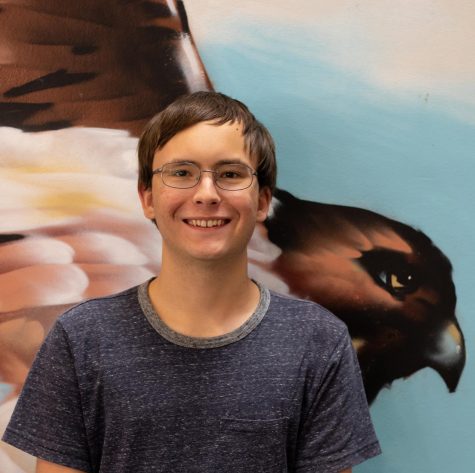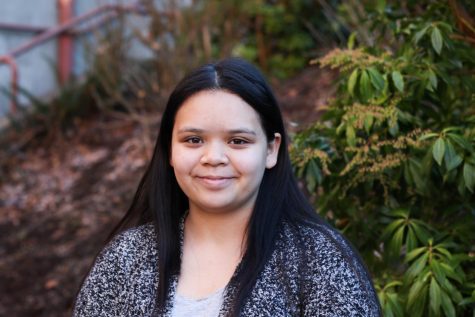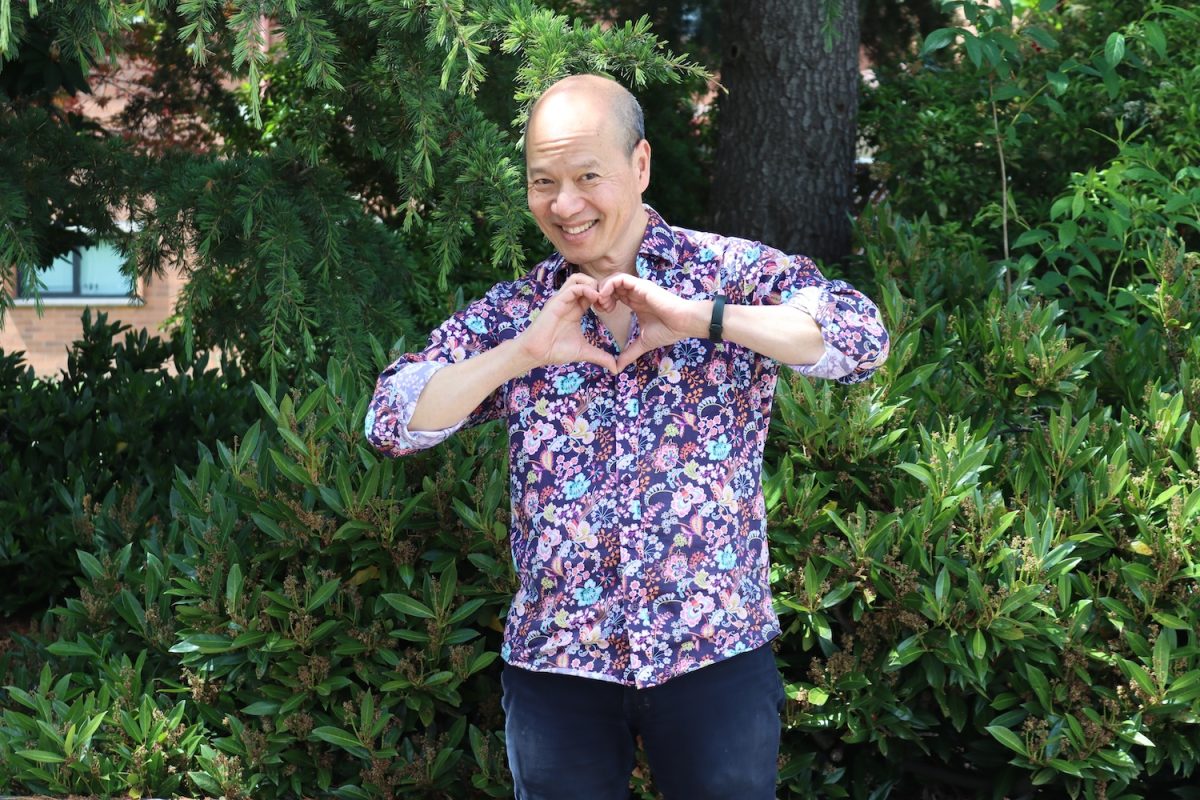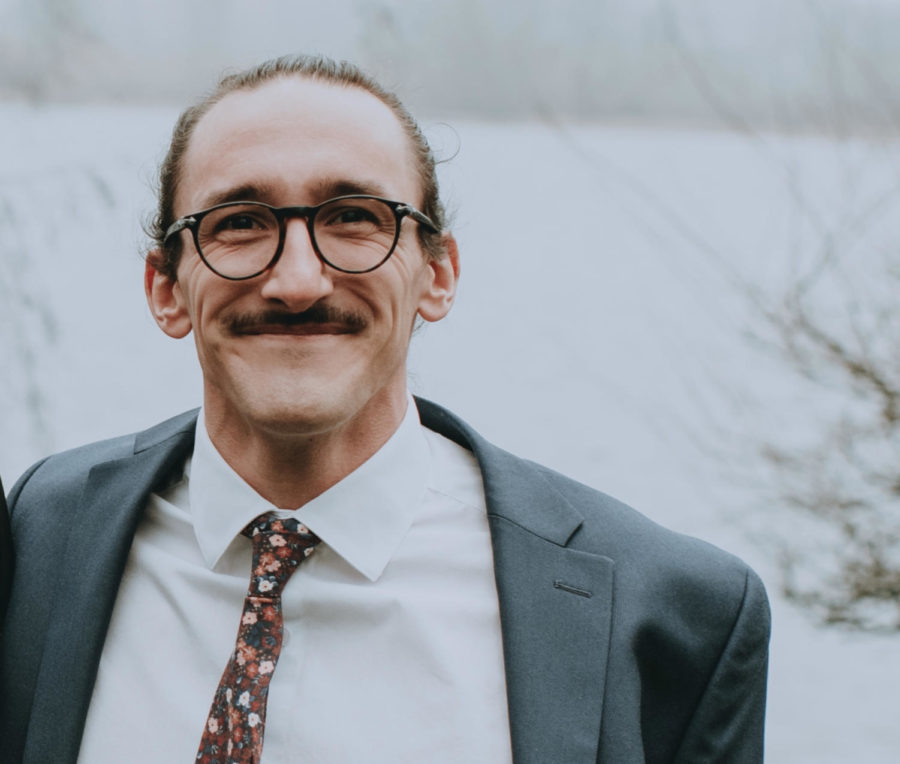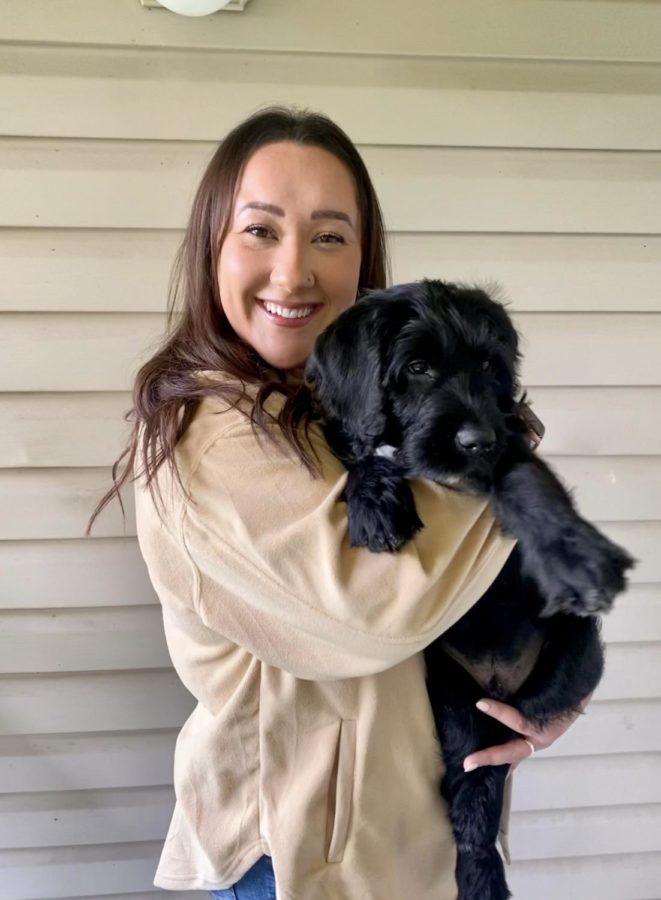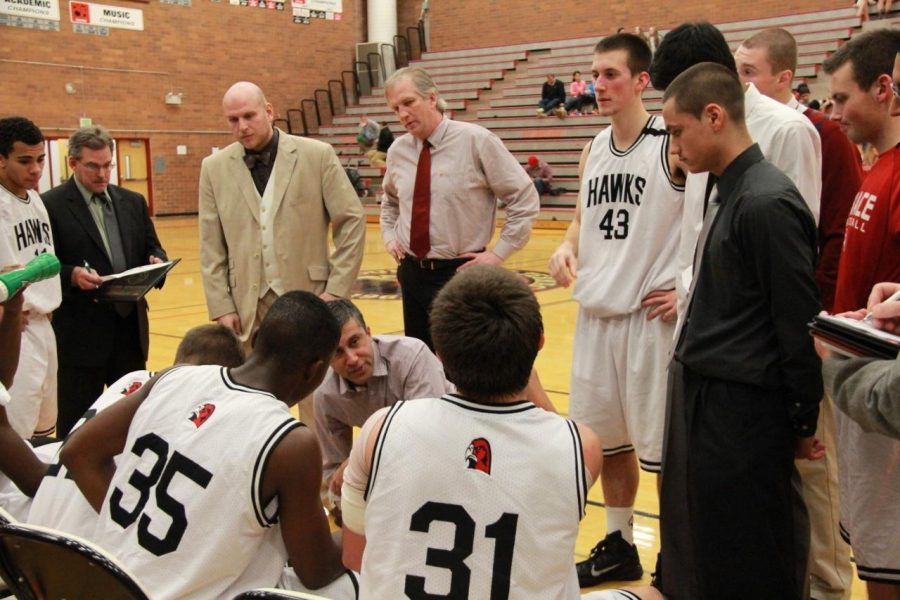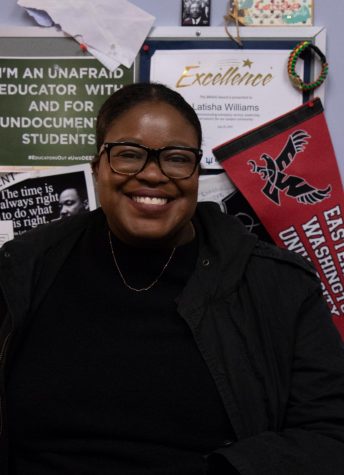
Latisha Williams became the school social worker after a long road of assisting other students in high school.
Latisha Williams has been passionate about lending a helping hand to those less fortunate than herself since high school. With her new job as a social worker and student support advocate at MTHS, Williams has a way to channel that passion into a career.
Ashley Dawson, who previously held the position, left MTHS in November to take a similar role for the Lynnwood Police Department. Williams was chosen by the MTHS administration to fill the role, enthusiastically taking her first social work job in a school district setting.
Before coming to MTHS, Williams had a history of helping her peers and seeking to make a positive difference in people’s lives.
Williams first acknowledged her passion for helping the community during high school, where she was passionate about helping her classmates succeed. She recalled a specific moment during her senior year of high school when she was given her first real opportunity to help a struggling group of young people.
“My senior year of high school, my teacher was at a point where she was really struggling with a certain group of students, and I had already taken her class before, so she said that if I focused on supporting these students, I would pass her class no worries,” Williams said. “That was my first experience being intentional working alongside young people in order to help them achieve a goal they had.”
After having experiences helping other young people while in high school, Williams knew she wanted to make a career out of helping people achieve their goals as she entered college at Eastern Washington University.
“When I graduated high school, I thought I would go to college and I’d study psychology because that was all I knew at the time about helping people — that if you want to help people, then you study psychology,” Williams said.
Although initially intending to major in psychology, Williams quickly discovered after taking a psychology class during her first quarter that psychology was not the field in which she wanted to make a career.
“I was miserable because it wasn’t teaching me how to tangibly walk alongside and support people,” Williams said.
Deciding to explore further options after completing her psychology course, Williams enrolled in a sociology course. Although she was happier studying sociology because it allowed her to examine the relationships between people, the field still did not teach her how to figure out what was troubling a person and then guide that person through their problems.
Finally, Williams discovered her passion for social work by taking a social work class, which allowed her to learn how to help people through their problems with actions such as counseling and helping them navigate different support services and systems.
Additionally, the social work program gave Williams the opportunity to tangibly apply her learning to helping people in the real world through programs such as internships. The ability to use her learning led Williams to have no doubt she wanted to make a career out of helping people through social work.
“I was an intern at a homeless shelter for ten months, which really solidified what I wanted to do in terms of walking alongside people and helping them get to their goal,” Williams said.
Ultimately, Williams graduated with a bachelor’s degree in social work from Eastern Washington University in 2012, after which she returned to Western Washington and took a job conducting social work for young people.
“I’m originally from this side of the state, so I came home and worked for an organization called Cocoon House, where I was an advocate,” Williams said. “I worked on the streets at all different times of the day and night helping young people aged 13 to 21 figure out what they wanted to do next.”
Through her work with homeless and at-risk young people as an advocate for Cocoon House, Williams was often involved in school systems throughout the western portion of Washington state. She focused on guiding homeless, at-risk and disconnected youth across Snohomish County by helping them access services such as long term housing and homelessness prevention programs through street outreach across the county.
While working for Cocoon House, Williams also worked on her master’s degree in social work through a program where she worked as a social worker for the state while having her tuition paid. However, she found that she did not enjoy the heaviness of working as a social worker for the entire state and wished to return her focus to specifically helping young people.
While working at Cocoon House, she worked with many student support advocates and decided that she wanted to focus her work to help students within a school setting. Being done with school and having experiences helping young people on the street, Williams finally felt ready to settle down into a more permanent and stable social work position.
Although this is Williams’ first job in a school district position, she has done prior social work with the Edmonds School District (ESD). Before coming to MTHS, Williams worked with the Edmonds Career Access Program (EdCAP) as a social work case manager.
At EdCAP, Williams worked with ESD students at the college level who had either seriously struggled with or dropped out of school. The goal of EdCAP is to work with students aged 16 to 21 who were not able to graduate high school and help them achieve a high school diploma in a college environment while introducing them to potential future degrees and certifications. EdCAP is tuition-free with the active support of social workers working with the ESD.
One of the things Williams loves about her new job is the large number of interactions she gets to have with any students needing her support, not being confined to working with a handful of young people as she was at previous jobs.
“I get to interact with anyone,” Williams said. “It’s not like I’m working with just 25 to 30 students, it could be 100 or 200, whoever needs help and support.”
Students are sent to work with Williams through a variety of methods, including referrals from teachers, administration, counselors and students concerned about fellow students, although anyone can come to see her for help.
“First and foremost, I always like to build relationships,” Williams said. “That could mean just calling people in and talking about their experience at MTHS, explaining to them my role and letting them decide if there is a way I can support them.”
Williams does not want to force students to accept her help and advice and instead wants to allow individual students to decide when they need the support she offers.
“I’m never going to be the kind of person that says you have to meet with me,” Williams said. “I want to get to know you and who you are, and from that, if a need comes up, let’s work together.”
Williams emphasizes her role as a problem solver as the most significant component of her job as the MTHS social worker. Ultimately, Williams wants to find solutions to student problems through open conversation with the troubled students and find an answer on which all parties can agree.
“I get to sit next to someone and figure out how we can work together to find whatever solution they might need,” Williams said. “I say no question is off limits and I also say that I might not know the answers to everything, but as we build a relationship together, we get to figure out what the answer’s gonna be. I’m never going to be the one to push you into something or say this is best or this isn’t best; I’m here to really listen and help us develop together.”



